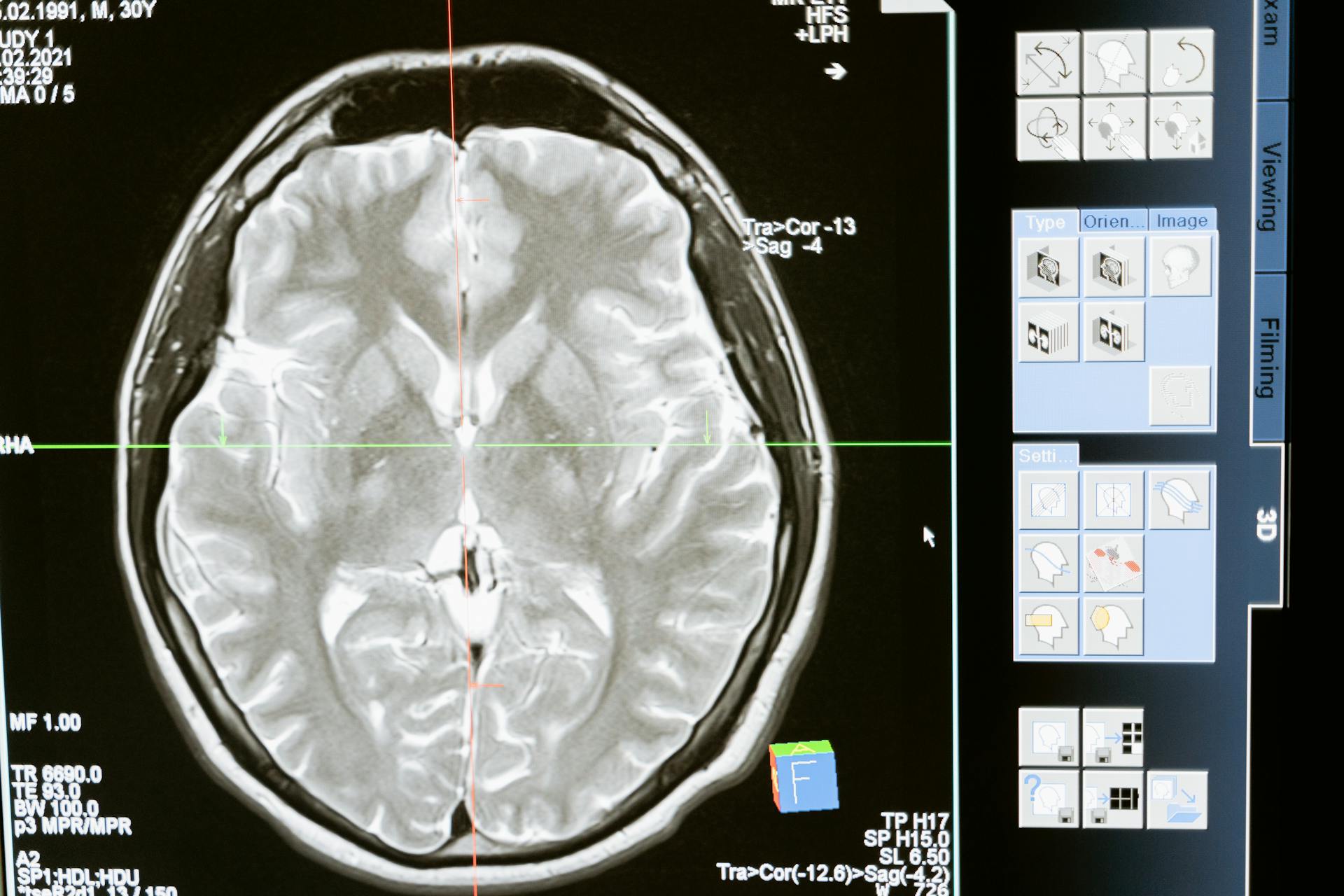
Meditation can reshape our brains in many ways. It can improve our memory, attention, and focus. It can decrease our anxiety and stress levels. And it can help us become more compassionate and present.
Long-term meditators have more gray matter in their frontal cortexes than people who don’t meditate. This part of the brain is responsible for executive function, working memory, and emotional regulation. It also helps us to focus our attention and to be more aware of our surroundings.
People who meditate also have more connectivity between different areas of their brain. This helps them to process information more efficiently and to make better decisions.
Meditation can also help to decrease our stress levels. When we’re stressed, our bodies produce cortisol, which can lead to anxiety, depression, and other health problems. But when we meditate, we can reduce the amount of cortisol in our bodies and feel more relaxed.
Lastly, meditation can help us to become more compassionate and present. When we meditate, we learn to focus on the present moment and to be non-judgmental about our thoughts and feelings. This can help us to be more understanding and forgiving of ourselves and others.
Expand your knowledge: When Can I Retire
How can meditation reshape our brains?
Meditation has been shown to have a variety of benefits for practitioners, including improved focus, concentration and mental clarity, and decreased anxiety and stress. Meditation has also been shown to improve physical health, including lowering blood pressure and improving sleep quality.
Recent studies have begun to explore how meditation may actually change the structure and function of the brain. One study, published in Frontiers in Human Neuroscience, found that participants who underwent an eight-week meditation training program had changes in brain structure, specifically in the areas associated with attention and processing sensory information.
Another study, published in the journal Psychiatry Research: Neuroimaging, found that long-term meditators had increased grey matter density in the hippocampus, an area of the brain associated with learning and memory, and in the orbitofrontal cortex, an area associated with decision-making.
So how does meditation actually reshape the brain? One theory is that it helps to create new neural connections and strengthens existing ones. Meditation has also been shown to increase levels of the brain-derived neurotrophic factor (BDNF), a protein that helps to promote the growth and survival of nerve cells.
So what does all of this mean? Meditation appears to have a real and measurable impact on the brain, and this is likely one of the reasons why it has so many benefits for practitioners. If you're looking to improve your focus, concentration or mental clarity, or just want to give your brain a boost, meditation may be worth a try.
What are the benefits of meditation for brain health?
Meditation has been shown to offer a host of benefits for brain health, including improved cognitive function, increased grey matter density, and enhanced protection from age-related cognitive decline.
Cognitive function is the ability of the brain to process information, and meditation has been shown to improve this function in a variety of ways. One study found that participants who underwent an eight-week meditation program had improved working memory and task flexibility, as well as increased grey matter density in the hippocampus, an area of the brain important for learning and memory.
Other studies have shown that meditation can help to protect the brain from age-related cognitive decline. One study found that participants who had practiced meditation for an average of 20 years had significantly less age-related cognitive decline than those who did not meditate.
In addition to the cognitive benefits of meditation, it has also been shown to offer other benefits for brain health. Meditation has been shown to decrease stress and anxiety, two risk factors for developing Alzheimer’s disease. Meditation has also been shown to improve sleep quality, which is important for brain health.
There are a variety of ways to meditate, and it is important to find a method that works for you. Meditation can be done sitting, lying down, or even walking. There are also a variety of guided meditation programs available, which can help you get started.
If you are interested in trying meditation, it is important to be patient and consistent. It can take some time to learn how to meditate effectively, but the benefits are well worth the effort.
Intriguing read: Can You Meditate in the Shower?
How does meditation impact brainwave activity?
Meditation has been shown to have a significant impact on brainwave activity. In particular, it has been shown to increase alpha and theta brainwave activity, which are associated with relaxation and increased creativity. Additionally, meditation has been shown to decrease beta brainwave activity, which is associated with anxiety and stress. These changes in brainwave activity have been shown to result in a number of positive benefits, including decreased stress and anxiety, improved mood, increased creativity, and improved focus and concentration.
How does meditation affect the structure of the brain?
Meditation has been shown to have a profound effect on the structure of the brain. In a study published in the Proceedings of the National Academy of Sciences, researchers found that a group of people who had never before meditated showed significant changes in brain structure after just eight weeks of regularly practicing meditation.
The study participants who meditated showed increased grey matter density in the hippocampus, known to be important for learning and memory, and in structures associated with self-awareness, compassion, and introspection. They also showed decreased grey matter density in the amygdala, which is responsible for fear, anxiety, and stress.
These changes in brain structure were not seen in a control group of people who did not meditate. The researchers believe that the changes in brain structure that were seen in the meditation group are associated with the perceived benefits of meditation, such as decreased stress and anxiety, and increased self-awareness and compassion.
While more research is needed to confirm the specific effects of meditation on the brain, this study provides compelling evidence that meditation can produce significant changes in brain structure. This suggests that meditation may be a valuable tool for reducing stress, anxiety, and improving emotional well-being.
What regions of the brain are impacted by meditation?
The jury is still out on which regions of the brain are impacted by meditation. Some studies suggest that the prefrontal cortex and the hippocampus are two areas that are impacted by meditation. Other studies have looked at the activity in the amygdala, which is responsible for processing fear and other emotions. It's possible that different types of meditation impact different areas of the brain. For example, mindfulness meditation may impact the prefrontal cortex, while Transcendental Meditation may impact the amygdala. more research is needed to determine which areas of the brain are impacted by meditation and how different types of meditation impact different areas of the brain.
How does meditation influence neurotransmitter release?
Meditation is a form of mental and physical training that has been practiced for centuries in eastern cultures. Within the past few decades, meditation has been increasingly studied by western science, in an attempt to unlock its many potential health benefits.
One area of particular interest is how meditation may influence neurotransmitter release. Neurotransmitters are chemical messengers that are responsible for communication between nerve cells. They play a vital role in regulating mood, energy levels, and various other physiological processes.
There is some evidence to suggest that meditation can increase levels of certain neurotransmitters, such as serotonin and gamma-aminobutyric acid (GABA). For example, one study found that participants who underwent an 8-week mindfulness-based stress reduction (MBSR) program had increases in serotonin and GABA levels compared to a control group (1).
These findings are supported by another study which found that participants who underwent a 3-month mindfulness meditation program had increased levels of GABA compared to a control group (2).
Not all studies have found increases in neurotransmitter levels following meditation, however. One study found that levels of dopamine, another important neurotransmitter, were not affected by a 8-week MBSR program (3).
It is important to note that neurotransmitter levels can be affected by many different factors, including diet, sleep, and exercise. Therefore, it is possible that the observed changes in neurotransmitter levels following meditation are due to other factors, such as the stress-reducing effects of the practice.
Overall, the research on how meditation influences neurotransmitter release is still in its early stages. However, the available evidence suggests that meditation may have a positive impact on some important neurotransmitters, which could potentially lead to various health benefits.
What is the role of the hippocampus in mediating the effects of meditation?
The hippocampus is a small, U-shaped region of the brain located in the temporal lobe. It is important for the formation and retrieval of memories, and has been shown to be particularly important for the consolidation of new memories into long-term storage. The hippocampus is also involved in some of the brain's higher-level cognitive functions, such as spatial navigation and navigation by landmarks.
Recent research has shown that the hippocampus is also involved in mediating the effects of meditation. Meditation is a practice that has been shown to have numerous benefits for mental and physical health. Some of the most well-established benefits of meditation include reduced stress and anxiety, improved mood, increased focus and attention, and improved sleep.
It is thought that the hippocampus plays a role in mediating the effects of meditation by modulating the activity of the stress-response system. Meditation has been shown to decrease activity in the hippocampus, which in turn reduces the activity of the stress-response system. This decreases the overall level of stress and anxiety in the individual. Additionally, meditation has been shown to increase hippocampal plasticity, which is thought to be important for the consolidation of new memories and the retrieval of old memories.
Overall, the hippocampus appears to play an important role in mediating the effects of meditation. Meditation has been shown to have a number of benefits for mental and physical health, and the hippocampus appears to be an important mediator of these effects.
How does meditation promote neuroplasticity?
Meditation has been found to promote neuroplasticity in a number of ways. First, meditation can help to improve focus and attention. A number of studies have found that meditation can help to improve attention span and focus, as well as reduce the number of distractions and thoughts that cause people to lose focus. In turn, this can lead to increased neuroplasticity. Second, meditation can help to improve memory. A number of studies have found that people who meditate regularly have better memories than those who do not meditate. This is likely due to the fact that meditation helps to improve focus and attention, as well as reduce stress and anxiety. Both of these factors can lead to improved memory. Third, meditation can help to reduce stress and anxiety. A number of studies have found that meditation can help to reduce stress and anxiety levels. This is likely due to the fact that meditation helps to improve focus and attention, as well as reduce the number of distractions and thoughts that cause people to feel stressed and anxious. Fourth, meditation can help to improve sleep quality. A number of studies have found that people who meditate regularly have better sleep quality than those who do not meditate. This is likely due to the fact that meditation helps to reduce stress and anxiety levels, as well as improve focus and attention. Lastly, meditation can help to improve mental and physical health. A number of studies have found that people who meditate regularly have better mental and physical health than those who do not meditate. This is likely due to the fact that meditation helps to improve focus and attention, reduce stress and anxiety, and improve sleep quality.
What is the relationship between meditation and cognitive function?
There is a lot of debate surrounding the relationship between meditation and cognitive function. Some people believe that meditation can help improve cognitive function, while others believe that it can actually impair it. However, the evidence seems to suggest that meditation can actually have a beneficial effect on cognitive function.
A study published in Frontiers in Psychology looked at the effects of meditation on cognitive function in older adults. The study found that those who participated in an eight-week meditation program showed significant improvements in attention, memory, and executive function, as well as a decrease in depressive symptoms.
Another study, published in the journal Mindfulness, found that a group of people who participated in an eight-week mindfulness-based stress reduction program showed significant improvements in measures of working memory, executive function, and verbal fluency, as well as a decrease in levels of rumination.
So, what does this evidence suggest about the relationship between meditation and cognitive function? It seems that meditation can actually have a positive effect on cognitive function, particularly in older adults and those who are experiencing high levels of stress.
Frequently Asked Questions
Can meditation help you live 256 years?
There is no evidence to suggest that meditation can help you live 256 years.
What are the health benefits of meditation?
There are a number of health benefits to meditation, including: boosts your immune system lowers your stress hormone levels increases your level of happiness and satisfaction with life slows age-related cognitive decline supports better sleep patterns improves mental focus and concentration reduces anxiety and depression symptoms.
Can meditation help you age faster?
The study's lead author, Sara Lazar, Ph.D., a post-doctoral researcher at the Harvard Medical School's Department of Mental Health, said in a statement: "Our research shows that meditation is remarkably effective at slowing down cellular aging and has the potential to be an important tool for optimizing human health." What did they measure? The researchers looked at cardiovascular disease risk factors, telomeres, inflammation markers, gene expression profiles and mitochondrial function. What did they find? Compared to Control groups who didn't meditate or receive any other interventions, people who practiced forms of meditation including Transcendental Meditation (TM), Qigong and Loving-Kindness Meditation showed significantly reduced rates of cellular aging in apparently healthy populations. Notably, reductions were observed in several biomarkers indicative of cellular aging such as total cholesterol levels and circulating lipid particles, oxidative stress levels, inflammation markers and gene expression profiles related to cell dysfunction. Cellular aging was also found to
Is there a way to extend your life?
There are a few ways to extend your life, however the only 100% certified method of extending life is caloric restriction . Caloric restriction has been shown to increase lifespan in a variety of organisms including worms, flies, mice and humans. This effect is due to the fact that caloric restriction increases the output of several hormones that promote health and longevity such as IGF-1 , insulin-resistance and BDNF . Is caloric restriction effective? There is overwhelming evidence that caloric restriction is indeed an effective way to extend lifespan. In fact, many studies have found that when calorie intake is deliberately restricted by 25-50%, the lifespan of animals can be extended by up to 60%.
Can meditation change the size of your brain?
Yes, according to neuroscientist Sara Lazar's amazing brain scans of people who practice mindfulness meditation. In a study published in the journal Social Cognitive and Affective Neuroscience, Lazar and her team looked at MRI scans from twenty-eight long-term meditators (defined as individuals who have practiced for at least six months) and twenty-four psychological controls. They found that the long-term meditators had significantly larger anterior cingulate cortices (ACC), a key region of the brain associated with reflexes, attentional focus, higher levels of empathy and compassion, and resilience to stress. These findings suggest that mindfulness meditation can change the size of key regions of our brain, which may improve our memory and make us more empathetic, compassionate, and resilient under stress.
Sources
- https://www.youtube.com/watch
- https://psychcentral.com/blog/how-meditation-changes-the-brain
- https://psychcentral.com/health/meditation-brain-waves
- https://ec.europa.eu/research-and-innovation/en/horizon-magazine/meditation-visibly-changes-your-brainwaves
- https://guide2secret.com/2018/02/meditation-can-reshape-brains-sara-lazar/
- https://uplift.love/how-meditation-can-reshape-your-brain/
- https://mindworks.org/blog/benefits-exercise-meditation-brain-health/
- https://www.oshonews.com/2013/01/24/meditation-can-reshape-our-brains/
- https://buddhistuniversity.net/content/av/how-meditation-reshapes-the-brain_lazar-sara
- https://wellbeingport.com/which-regions-of-the-brain-are-affected-by-mindful-meditation/
- https://wavemeditation.com/meditation-benefits-for-brain/
- https://www.health.harvard.edu/mind-and-mood/meditation-for-your-health
- https://jagjotsingh.com/how-meditation-changes-brain-waves/
- https://www.forceful-tranquility.com/meditation-and-brainwaves-complete-explanation/
- https://www.wildmind.org/blogs/on-practice/how-meditation-can-reshape-our-brains
Featured Images: pexels.com


